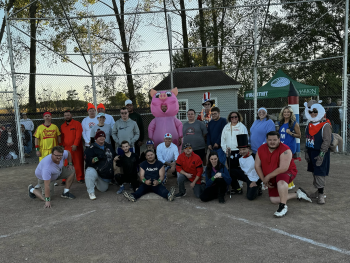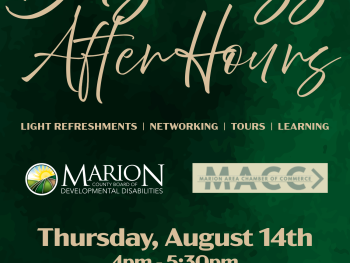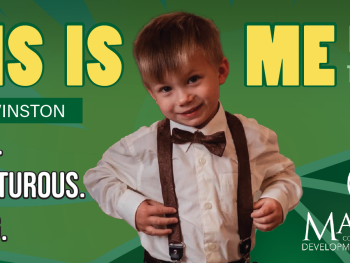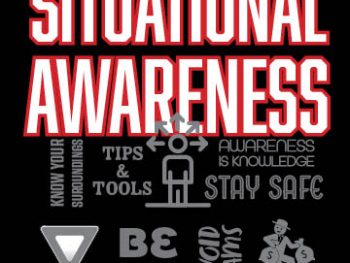
There’s something about a horse. It could be the large stature, long flowing mane, or the way they trot freely in an open field. To watch them in the pasture is relaxing. Peaceful.
Maybe that is why Micki Shelter loves horses so much – or maybe it’s because Micki and the horses at Providence Therapeutic Equestrian Center in Morral, Ohio seem to have an understanding.
Micki is a seven-year-old girl who is autistic. Often, she feels misunderstood, sometimes out of place, but when she’s with the horses, she’s in heaven.
“She has always been fascinated with horses,” Micki’s mother, Becky Kindred, said of the bond, “So when Jamie Hawkins, our SSA (Service and Support Administrator) at the Marion County Board of Developmental Disabilities helped us get set up with classes through Providence, it was a dream come true for her.”
Lori Kepford, owner of Providence, can relate to Micki’s fascination with horses. “I was just a little farm girl in Caledonia when I got my first pony. My love for horses just kept growing after that, and I’ve been involved with them ever since.”
Kepford explains that while horseback riding is great exercise and a whole lot of fun, it is more than that at Providence. “We provide weekly horseback riding lessons and other equine assisted activities to children and adults with special needs,” she said.
A certified PATH (Professional Association of Therapeutic Horsemanship) International instructor teaches all sessions. The horses used in the program undergo thorough training and are chosen for their gentleness. They will accept unusual or spastic movement and are responsive and adept at meeting the unique needs of their riders.
Equine therapy addresses key symptoms affiliated with autism. Some of those are communication and social skills, lowered sensory skills, motor skills, and response to verbal cues and external stimuli. While riding, a bond is developed with the horse. The horse becomes familiar with the students’ movements, attitudes, and emotions, which make them extremely effective in bonding with an autistic child and encouraging communication and interaction.

“The horses just seem to know. They are drawn to our students with disabilities and a bond is instantly formed. The students do not even realize that in our classes they are learning to communicate and interact by responding to cues. They learn awareness of their surroundings, and how to interact with the horses to get them to do what they want,” Kepford said. “This can all translate into real-world scenarios that those with autism need to work through as they grow socially.”
Because the benefits of equine therapy are so tremendous for an autistic child, the Marion County Board of Developmental Disabilities will sometimes fund lessons for those whose families can’t do it on their own. Services like this are unfortunately in jeopardy of disappearing because of lack of local funding.
Kindred has seen improvement in communication, behavior, and so much more from Micki. “I think I love these classes just as much as Micki. The hour-long sessions provide some peaceful time for me too,” she said of the classes. “When I see how happy Micki is and how responsive she is with her horse, it puts a smile on my face.”
Kindred talked frankly about the challenges of raising a child with Autism. “It’s not easy,” she said. I have two other children which cause for a hectic schedule at times. Micki does not deal well with change, and we have a crazy schedule,” she adds. “My husband (Terry Shelter) is a huge help, and together, we make it work.”
Kindred is interested in finding families that may want to be involved in a local support group for those with autistic children. If you have an autistic child and are interested in such a group, please contact the Marion County Board of Developmental Disabilities.
To learn more about Providence Therapeutic Equestrian Center, visit them at www.providencetec.com.
To learn more about the Marion County Board of Developmental Disabilities, find them on Facebook, Twitter, Instagram, and LinkedIn.













 Marion County Board of DD and Marca adjust after forced privatization for Marca
Marion County Board of DD and Marca adjust after forced privatization for Marca